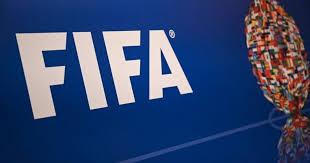For a considerable time now, FIFA, the global governing body of football, has been perceived as prioritizing business interests over the welfare of players and leagues. This focus has led to mounting concerns about the unsustainable match calendar imposed on top clubs and players. As a result, the players’ union FIFPRO and the European Leagues have taken the significant step of launching legal action against FIFA.
Growing Frustration Over Match Congestion
Top leagues and players in Europe have banded together to address the “unsustainable” nature of the current international match calendar. Prominent figures like Kevin De Bruyne have frequently voiced their frustration about the relentless schedule, which sees teams in England competing in the Premier League, FA Cup, Carabao Cup, and various European competitions such as the Champions League, Europa League, and Europa Conference League.
Adding to the burden, FIFA is set to introduce a revamped Club World Cup next summer, featuring 32 teams from around the world. This is in addition to the regular commitments of international players in World Cups, continental championships, Nations Leagues, and numerous friendlies. This intense schedule leaves little time for players to rest and recover, prompting severe criticism from all corners of the football world.
Legal Action Initiated
In response to the growing discontent, FIFPRO and European Leagues have decided to take legal action, alleging that FIFA has ignored their concerns. “Following decisions by their respective executive bodies, European Leagues and FIFPRO Europe will jointly file a formal complaint to the European Commission on competition law grounds against FIFA regarding the international match calendar,” a joint statement read.
The statement elaborated that for several years, leagues and player unions have urged FIFA to develop a clear, transparent, and fair process for managing the international match calendar. Despite repeated requests, including a formal plea before the FIFA Congress and Council in May 2024, FIFA has consistently excluded national leagues and player unions from its decision-making process.
The Core Issues
The crux of the complaint is that the current international match calendar is overly saturated and unsustainable, posing a risk to national leagues and the health of players. FIFA’s decisions, according to the complaint, have consistently favored its own competitions and commercial interests, neglecting its responsibilities as a governing body and harming the economic interests of national leagues and player welfare.
The legal action argues that FIFA’s dual role as both the global regulator of football and a competition organizer creates a conflict of interest. This, the complaint contends, constitutes an abuse of dominance under EU competition law. The complaint insists that FIFA’s conduct falls short of the requirements for transparency, objectivity, non-discrimination, and proportionality as stipulated by recent EU case law.
Broader Legal Efforts
The formal complaint, to be filed by European Leagues, LaLiga, and FIFPRO Europe, will run parallel to separate actions initiated by individual leagues and player unions at the national level. In June, the player unions from England, France, and Italy brought a related action before the Brussels commercial court.
Coordinated Effort with European Commission
The two groups have informed the European Commission of their legal action and aim to collaborate closely during the investigation process. Maheta Molango, CEO of the PFA and FIFPRO Board member, emphasized that legal action is a necessary response to the ballooning schedule.
“Legal action is the unfortunate but inevitable consequence of major stakeholders within the game – the leagues and the players – being ignored. What unites us is the impact that decisions about the fixture calendar, made by international governing bodies, are having,” Molango stated.
Molango pointed to recent changes in the structure of the FA Cup in England as a direct result of the expansion of international competitions, highlighting the knock-on effects on players’ careers. He also noted the rescheduling of the African Cup of Nations due to FIFA’s expanded Club World Cup, underscoring the widespread impact of FIFA’s scheduling decisions.
Conclusion
As FIFA faces increasing pressure from players and leagues, the legal action spearheaded by FIFPRO and European Leagues marks a pivotal moment in the ongoing struggle to ensure a more sustainable match calendar. The outcome of this legal battle could significantly reshape the future of international football scheduling, prioritizing the welfare of players and the integrity of national leagues.
The ramifications of this case could be profound. If the European Commission rules in favor of FIFPRO and the European Leagues, it could lead to a significant overhaul of how the international match calendar is structured, ensuring a more balanced schedule that prioritizes player welfare and the sustainability of national leagues. This could also set a precedent for how other sports governing bodies handle their scheduling and regulatory responsibilities, potentially leading to broader changes in the sports industry.
FIFA’s response to this legal challenge will be closely watched by all stakeholders in the football community. The organization will need to address these concerns in a manner that not only satisfies legal requirements but also demonstrates a genuine commitment to the welfare of players and the health of the sport. As the legal proceedings unfold, the football world will be looking for signs that FIFA is willing to make the necessary changes to ensure a sustainable future for the game
ALSO READ:Gerry Cardinale’s Strategic Visit to Milan: AC Milan Close to Securing Youssouf Fofana


